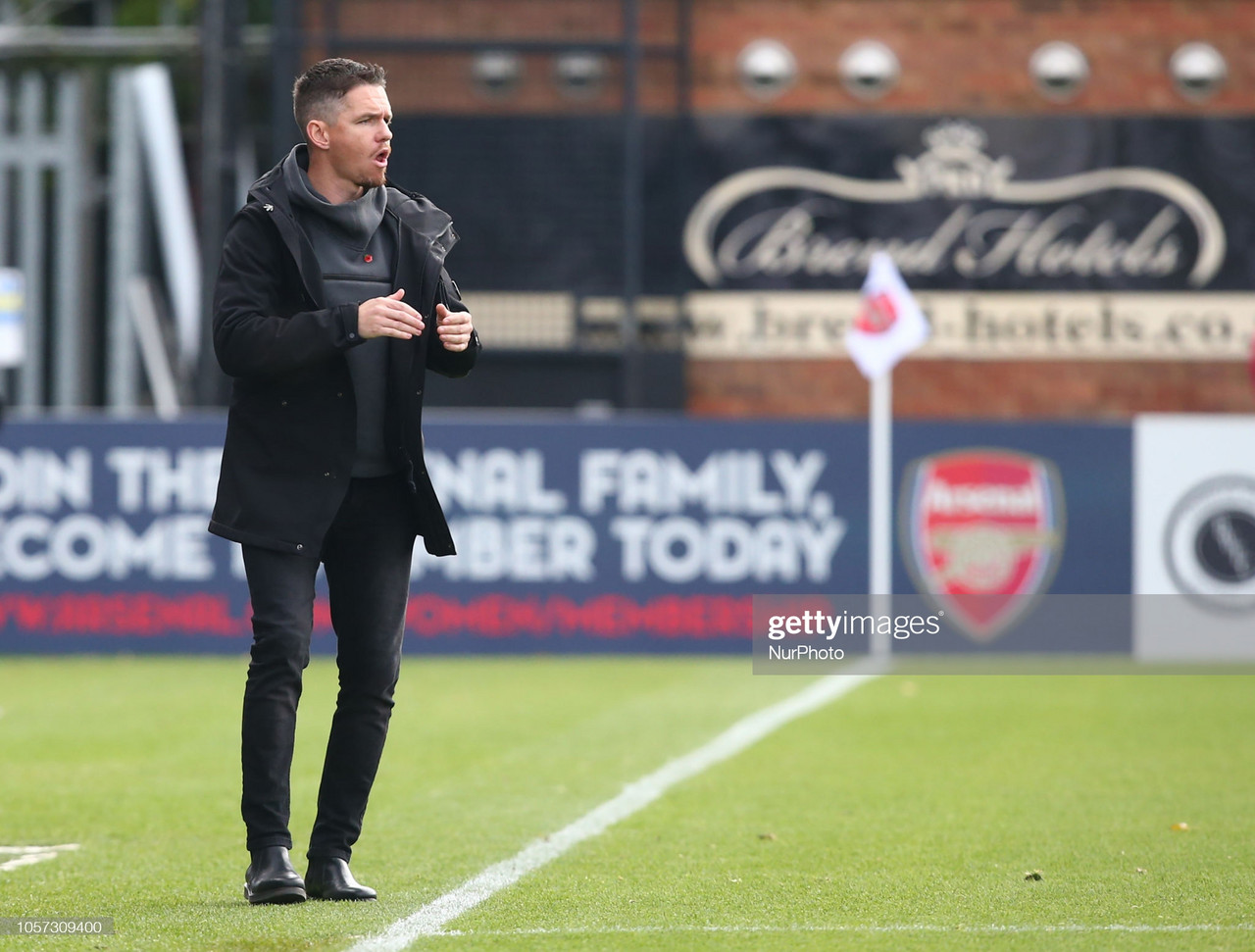Since the resignation of Casey Stoney almost twelve weeks ago, there have been more questions than answers surrounding Manchester United Women. A side that pushed Chelsea’s dominance for a large portion of the 2020-21 campaign was left without their manager in Stoney, who had been the symbol of the phoenix Women’s side that had risen since their long overdue restart in 2018.
But Stoney’s departure was not unexpected, and did not leave United’s hierarchy necessarily in the lurch. United had been fully aware of the gripes Stoney had with the club and made little effort to pacify the situation, with more focus on the men’s operations and the resistance supporters were making against the Glazer Family and the European Super League.
United were not caught off-guard, and the story of the seventy-eight days that it took for Stoney to be replaced shows that the club were overwhelmed by the pressure of restarting the Women’s football club three years ago.
-
Why Stoney’s departure came as no surprise
The former England international in Stoney was reportedly agitated by the football club’s lack of resources given to the Women’s side of the game; training facilities were inexplicably poor for a club of United’s stature and there had been a constant friction between the manager and the board.
The 2020-21 campaign was similar on the pitch to that of the men’s; they were top of the table midway through the year after some impressive results but fell off significantly after the turn of the year, with the club finishing fourth, a point behind Arsenal and without UEFA Champions Leaguequalification.
Stoney was reportedly unhappy with the restrictive funds allocated to the women’s side of the football club, their move from Leigh Sports Village to Carrington meant that training was shoehorned around the men’s side, with temporary changing facilities and no access to showers given.
For a club of United’s pedigree, such treatment was considered by Stoney and her players to be unacceptable, as was United’s failure to accommodate their players in acceptable conditions, with The Athletic reporting that players described their lodgings as ‘disgusting’, and akin to student housing.
While the issue of training facilities came at the expense of the COVID-19 pandemic, United have struggled to house youth setups as they have done in previous years; the way in which Carrington is set up means that the men’s team would be prioritised and housed across several changing facilities, leaving youth teams and the Women’s side to change in temporary facilities.
United’s hierarchy have claimed that “Facilities for the women’s team at Carrington are now being upgraded over the summer”, but this came at too late a juncture for Stoney, whose patience had run thin with United’s board. She had attempted to resign weeks prior only for the club to plead that she stay on until the end of the season, a request she fulfilled.
However, twelve weeks passed before a suitable replacement, in Marc Skinner, was found.
-
Restlessness in the camp
Players became quickly frustrated that the club could not agree terms for Stoney’s replacement, with the squad prepared to meet with the Professional Footballer’s Association to seek advice over their next steps.
This summer has seen several of last season’s core depart the club, with US internationals Tobin Heath and Christen Press return stateside after good campaigns with the club; Lauren James was also sold to champions Chelsea. James netted fourteen times as they romped to the WSL Championship title in their inaugural season, as well as winning the internal ‘Golden Boot’ award last term.
James is the younger sister of men’s international Reece James and will link up with her brother on a more regular basis at Cobham.
United have brought some new faces in to cope with the departures: Martha Thomas has signed from West Ham United, while Hannah Blundell made the switch from Chelsea, among other arrivals.
Skinner becomes the next, and most crucial, signing for the Red Devils this summer. Delays over appointments are the first cracks within a machine, as Tottenham Hotspur will no doubt feel after their extended search for a new manager on the men’s side of the game.
-
Who is the new manager?
Skinner arrives after departing Orlando Pride in the National Women’s Soccer League last week; the Pride currently sit just outside the playoff places in the NWSL regular season stage. His time with Birmingham Cityarguably sets him in good stead for the job at United, however.
He turned around the club’s style of play while with the Blues and reached an FA Cupfinal – no mean feat considering the dominance of clubs such as Chelsea, Arsenal and Manchester City in the women’s game.
Regardless, he will be judged at United based on his ability to take the club to the next step and put doubts over Stoney’s succession firmly in the rear-view mirror. Stoney will be recognised by history as the manager who built the club from the ashes of its infamous, ‘unprofitable’ 2005 demise, but Skinner could well be the person who turns that progress into trophies.
It will take plenty of work, however. Supporters are unhappy over the way in which the managerial search has been undertaken, with the lack of communication well into pre-season training leading many to doubt whether the interests of United Women were a priority within the club’s hierarchy.
John Murtough, United’s football director, has won plenty of praise for the swift business off the field for the men’s side, but a negligence for United Women will leave many questioning whether the club only relented to the outside pressure for publicity or whether they had an interest in doing things right.
At this point, only time will tell.








































